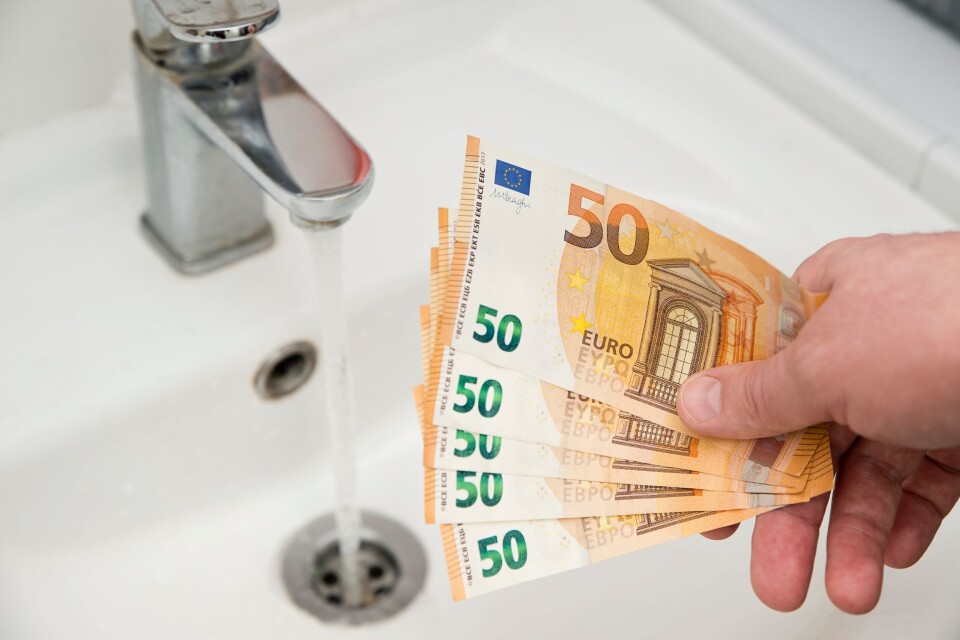-
Scam calls in France more than double in a year
Complaints about unsolicited calls are second only to those about fibre optic internet
-
‘Medical deserts’ major issue in upcoming local elections in France
Access to healthcare is now a more pressing concern than education, mayors say
-
‘Digital ID’ to be accepted at French airports this summer
Users of the France Identité app will be able to board certain flights using ID on smartphone
France drought: Macron wants water prices that punish those who waste
France’s president insisted it was not about raising water prices but instead rewarding those who use it responsibly

French president Emmanuel Macron wants “progressive” water pricing that rewards responsible use and punishes waste.
It came as he set out a plan to cut consumption and better manage water to counter the impacts of climate change.
After a record winter dry period, a dozen French departments are on drought alert. Parts of a further two - Bouches-du-Rhône (the department that includes Marseille) and neighbouring Var - are considered at crisis levels.
"The objective of the [water] plan must be to guarantee all French people access to quality drinking water for essential needs," he said, adding that "this does not mean that the price of water will increase”.
“Progressive” water pricing is already being used in some parts of the country, according to the newspaper Liberation, but Macron now wants to generalise it.
France’s president also said he wanted to:
- Move from using 1% of wastewater today to 10% by 2030
- Introduce a tool that would enable people to monitor water consumption levels in their regions
- Invest €180 million to tackle water leaks across France
- Produce a plan to reduce water consumption by 10% “in all sectors” by 2030
- Give water agencies an extra €500 million to help achieve the above objectives
Macron went on to say that, despite this water plan, he fears there will still be “situations of great stress” regarding drought this summer.
Read also: France allows local authorities to use wastewater after record drought
Read also: Seven tips on how to save water and reduce your bills in France
Drought in two French departments at crisis level
The drought is at crisis levels in nineteen communes in the southern French department of Bouches-du-Rhône and two in Var, according to government water site Propluvia, who published new data on Thursday.
A dozen French departments are on ‘alert’ or ‘reinforced alert’ for all or part of their area.
They are:
- Oise
- Yvelines
- Vienne
- Ain
- Drôme
- Isère
- Pyrénées-Orientales
- Aude
- Var
- Alpes-de-Haute-Provence.
- Haute-Sâone
- Bouches-du-Rhône
The ‘alert’ or ‘reinforced alert’ level means that farmers are limited to the amount of water they can use (must reduce by 20%) while local authorities and homeowners are also limited on the water they can use for gardens, green spaces, or golf courses.
The ‘crisis’ level means that departments must stop any non-priority water use, including for farming. Only priority use is allowed, including for health, hygiene, security, and drinking reasons. Only fields used to grow food can be watered, between the hours of 20:00 and 07:00. Filling swimming pools is banned.
The Var department has even taken more drastic, long-term measures, including imposing a freeze on all new building permits over the next five years, due to a lack of water.
Read more: How bad is the drought in France? See restrictions in your department
It comes after geological research authority le Bureau des recherches géologiques et minières (BRGM) said on March 1 that 80% of the groundwater tables in France were at “moderately low or very low” levels.
The BRGM said that the country was entering “major uncertainty”, and that water trends would “depend on rainfall”. It said: “It is difficult to see how [water] stocks will be replaced by Spring, given the very low groundwater levels”.
Related articles
Homeowners in France urged to help ease drought and forest fires
Drought in France: 2023 set to be ‘very dry year’ and it starts now
France must manage water better, researchers say after summer droughts
























